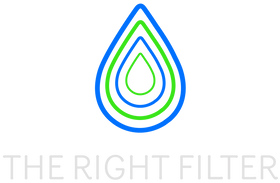Like a lot of people, I ramped up my hand washing during Covid. Unlike a lot of people, having a mother who was a nurse also meant I didn’t have to learn how to wash my hands ‘the right way’. What I did learn was how different soaps and different locations affected how my hands felt afterwards.
Really aggressive soaps dried out my hands and made them crack. And sometimes, my hands would smell like chlorine after using a sink at some restaurants and cafes.
Having cracked hands that smell like chlorine wasn’t my favorite part of Covid. My favorite part was the ‘oh no, I can’t come out to this social event I didn’t really want to go to because of Covid’.
But it did make me more aware of how many of the things in tap water were getting into my bloodstream through my cracked hands.

When washing hands with tap water, certain contaminants present in the water may be absorbed through the skin. How much gets absorbed depends on factors such as the type and concentration of contaminants, the duration of contact, the condition of the skin, and the temperature of the water.
Chlorine and chloramine are commonly added to water during the disinfection process in water treatment plants. While they serve the important purpose of killing bacteria and other microorganisms, it can also have a drying effect on the skin and may be absorbed to some extent.
What minerals and contaminants can get absorbed by washing your hands?
Trace amounts of heavy metals such as lead, copper, and zinc can be present in tap water due to corrosion of plumbing materials.
Certain VOCs (volatile organic compounds), such as those from industrial pollutants or contaminants, are generally found in low concentrations, but could also be absorbed.
Hard water minerals, like calcium and magnesium, can contribute to skin damage which affects absorption.
Finally, some harmful microorganisms could cause infections, if the skin is compromised or if the water is contaminated.
But there’s no need to freak out about it. If you use warm water, instead of hot water, that definitely helps. Using a milder soap (I prefer Dr. Bronner’s) can protect your skin, which in turn, protects you. And, if your tap water is hard or contains high concentrations of certain contaminants, installing a water softener or filtration system can absolutely help.
And while the absorption of contaminants through the skin is generally limited, if you have specific concerns about water quality, you might want to consider using a water filter.

Some people go so far as to use reverse osmosis systems when washing their face and hands, and there’s some anecdotal evidence that this kind of extremely filtered water can improve your skin’s health.
But before you go that far, a simple water test will tell you what’s in your water, and what you need to remove. Once you know that, you can make sure that when you wash your hands, you aren’t introducing a new problem.
You know, like smelling like you just got out of the pool when all you did was wash your hands.
